
Love or obsession?
Care or control?
Typical argument or abuse?
Codependent relationships have been highly normalised in our society. Mainstream media have always portrayed love and romantic relationships as the merging of two incomplete people into one.
Does this not however also mean that the person as an individual is broken without the other?
Always needing to ask for permission to do something; being with each other 24/7; putting the other on a pedestal; or giving everything you have to save or help your partner while losing yourself in the process – all these things have been normalised and are now deemed as sweet and caring gestures.
Is this what a healthy relationship should really look like?
What is codependency?

When the majority of people hear the word ‘codependency,’ they initially think of people addicted to certain substances, such as drugs and alcohol, which they cannot live a day without.
In a particular aspect, this is accurate since the term ‘codependency’ originated in 1936 by the people behind the Alcoholic Anonymous (AA) movement, Bill W. and Dr. Bob.
It helped reframe alcoholism as a weakness in character and lack of personal motivation into a disease over which the person has no control. Its original reference to alcoholism has developed throughout the decades.
It now applies to a broad range of relationships – not just the person’s codependent relationship with alcohol.
Beyond alcoholism, codependency now covers a wide range of dependent behaviours – emotional, social, or physical. It can apply to families, romantic relationships, friendships, and substances.
This type of relationship has many signs, symptoms, and consequences. One of the most prominent consequences is that people in one tend to neglect their own needs. This consequence can distort one’s perceptions, self-identity, and even self-worth. 1
Codependency is also popularly known as ‘relationship addiction.’ This explains the mainstream portrayal of love and romance as needing to be with each other 24/7.
There has been a long debate among mental health professionals on whether to put codependency as an official mental illness in the DSM-5; however, codependency is currently not recognized as a unique mental disorder.
Codependent relationship vs. Interdependent relationship

In contrast to how media portrays what a “healthy relationship” is, an interdependent relationship is considered the gold standard in terms of healthy relationships and not codependent relationships.
While codependency is an unhealthy attachment to another person, an interdependent relationship is a type of relationship where roles are more equal and with a similar amount of give-and-take.2
These are the things to look for in a healthy, interdependent relationship:3
- Healthy and respected boundaries
- Active listening
- Time and space for personal interests
- Clear communication
- Taking personal responsibility for behaviors
- Creating safety for each other to be vulnerable
- Engaging and responding to each other
- Healthy self-esteem
- Being open and approachable to each other
To foster a healthy relationship, it’s important to state your boundaries and limitations from the beginning of the relationship and to know what you want and what matters to you.
In a healthy relationship, you will never be scared or hesitate to ask for space and time to take care of yourself and pursue your interests and goals.
On the other hand, while codependency is not an official mental health diagnosis, it should not be taken lightly. People struggling with codependency often work with their sense of self, so they find the urge to depend on others.
Again, codependent relationships can manifest between platonic friends, romantic partners, family members, or other types of relationships, so we should always be aware of how our personal relationships evolve.
What is the difference between codependency and dependent personality disorder?
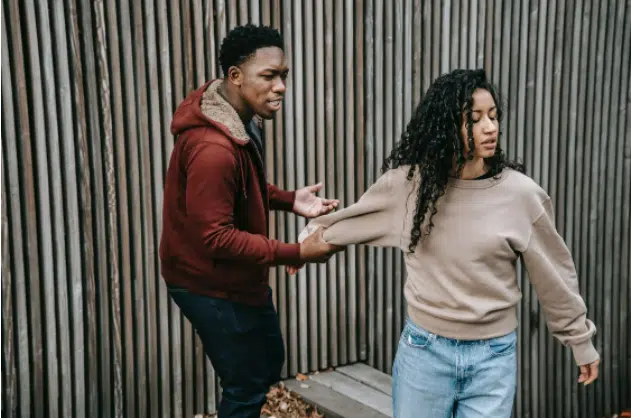
The biggest reason codependency is not ruled as an official mental health condition under the DSM-5 is that it significantly overlaps with other personality disorders, specifically Dependent Personality Disorder (DPD) and Borderline Personality Disorder (BPD).
Dependent Personality Disorder sounds like codependency, right? But in reality, there is a big difference between the two.
While DPD shares the most overlaps with codependency in terms of symptoms, the primary differentiation is the nature of the relationships.
- People with codependency behaviours are more prone to enact dependent traits toward a specific individual.
- People diagnosed with DPD tend to display dependent characteristics towards others in general.
Again, codependency is not an official diagnosis but a unique psychological construct with significantly similar symptoms to other personality disorders.
According to the Cleveland Clinic, DPD is an anxious personality disorder where people often feel helpless, submissive, or incapable of taking care of themselves. It commonly starts during childhood or by the age of 29.
Experts believe that it results from a mix of genetics, environment, and development.
People who have experienced abusive relationships, childhood trauma, family history of having DPD or another anxiety disorder, or specific cultural and religious or family behaviours linked to reliance on authority are more vulnerable to developing DPD.
Symptoms of DPD are:
- Avoidance of personal responsibility
- Difficulty being alone
- Fear of abandonment and a sense of helplessness when relationships end
- Oversensitivity to criticism
- Pessimism and lack of self-confidence
- Trouble making everyday decisions.
If you believe that you have most of these symptoms, it’s time to seek diagnosis and help from a mental health professional! You may also like to check out our article on Mental Health.
What makes a person prone to being codependent on another person?
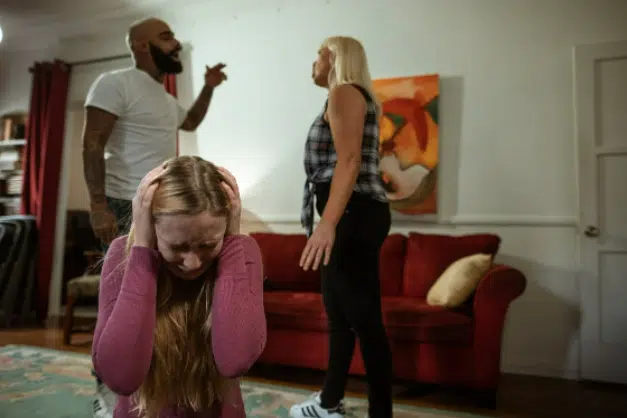
According to an article, codependency is a learned behavior likely rooted in a person’s childhood experience, much like other positive and negative psychological traits.
Children are sponges. The type of relationship they have with their parents, the relationship with their parents, and their relationship with and with other family members can significantly shape their perception of what a healthy relationship looks like.
And suppose a child grows up in a dysfunctional family or with overprotective or under protective parents, codependent behaviors will likely develop.
Children who grew up with overprotective parents and were too shielded to gain confidence or learn essential life skills may seek validation from others or believe they need another person to fill life responsibilities in adulthood.
On the flip side, neglected children may tend to overcompensate by becoming resistant to guidance or support since they grew up in a lonely and unsafe world as a child.
In general, children raised in a dysfunctional family, especially parents who have substance abuse issues, often end up with codependency issues in the future since they are already very familiar with neglecting their own needs for the sake of their parents.
Always keep in mind that every person always has the power to break the cycle of codependency and emotional, physical, and social abuse.
How do you spot a person with codependent behaviors?
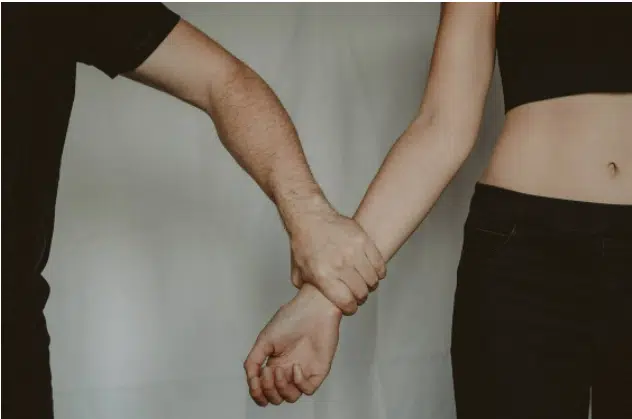
Since many codependent behaviors have become the norm or are even considered healthy traits, it’s vital to learn more about the characteristics of codependent people.
If you see these characteristics in yourself or a person you are in a close relationship with, then it’s consequential for you to evaluate how you will move forward with them and how to mend the unhealthy dynamics.
Here are the top 17 characteristics of codependent behaviours, according to Mental Health America:
- An exaggerated sense of responsibility for the actions of others;
- Proneness to confuse love and pity;
- A tendency to do and give more than they should, at all times;
- An unhealthy, sometimes even obsessive, dependence on relationships due to the fear of abandonment;
- An extreme need for approval and recognition;
- A sense of guilt when asserting their needs and boundaries;
- A compelling need to control others;
- Lack of trust in self and/or partner;
- Fear of abandonment or being alone;
- Difficulty in identifying feelings;
- Significant rigidity adjusting to change;
- Problems with intimacy and/or boundaries
- Chronic anger
- Constant lying and honesty
- Poor communication
- Difficulty making decisions
While all of these may not be present in one person, if you identify someone or yourself with the majority of these characteristics, then you are highly likely to be codependent.
At the same time, while codependents may have good intentions by becoming martyrs and giving all they have to the other person, it still adversely impacts everyone involved.
Most importantly, it hinders a person from having a healthy and satisfying relationship.
What are the signs that you are in a codependent relationship?
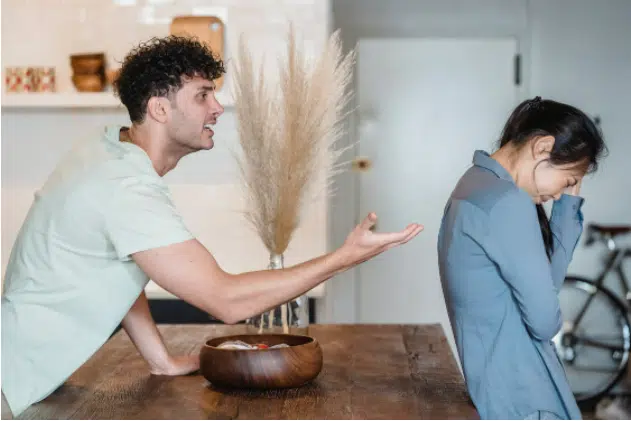
While it’s easy to spot a person who has codependent behaviours, it’s tricker and more challenging to see the red flags when you have been in the relationship for so long.
You may have internally normalised, often through manipulation, these unhealthy behaviours.
According to Margaret Paul, Ph.D., Co-Founder of Inner Bonding, in an article, manipulation isn’t always conniving and cruel-intentioned.
However, regardless, the effects are still the same. In most codependent relationships, there is always a giver and a taker. This dynamic is usually unequal and can also switch depending on the issue.
For example, one partner might be the giver of finances and the taker of emotional and sexual needs. While this relationship might work for a while, it’s usually not sustainable.
As stated by Dr. Paul, here are the symptoms of codependency in romantic relationships:
Taker symptoms:
- Feeling empty and unfulfilled in all aspects of the relationship, even if you’re doing something with your partner.
- Feeling the need to have other person/s’ attention, sex, and approval.
- Feel irritated, frustrated, and angry at most times, even without just reasons. You often feel more relaxed when with other people.
- Sense of entitlement to the other person’s time, space, money, body, etc.
- Comparing oneself to others
Caretaker symptoms:
- Needing to always be perfect to get approval and validation from your partner.
- Needing to be needed to feel like you matter. You tie your happiness and self-worth to how your partner sees and treats you, thus making them responsible for your feelings.
- Having a hard time receiving
- Feeling like a martyr, sacrificing yourself all the time. You are tuned into your partners’ feelings and needs, but you actively ignore your own.
- Excessively busy
Another article enumerates 8 signs of codependent friendships:
- One friend always needs rescuing.
- One friend spends too much time and effort trying to fix the other friend’s problems.
- One friend often feels emotionally and mentally exhausted after hanging out with the other friend.
- One friend puts the other friend’s needs first.
- If one is upset, the other person is equally affected.
- A friend or both find it hard to advocate for their personal choices or opinions in the friendship and often feel immense guilt about it.
- One or both friends are overly reliant on each other to satisfy their own needs.
- One friend feels overly jealous when the other gets close to someone else and often feels abandoned or threatened.
What are the effects of codependency?
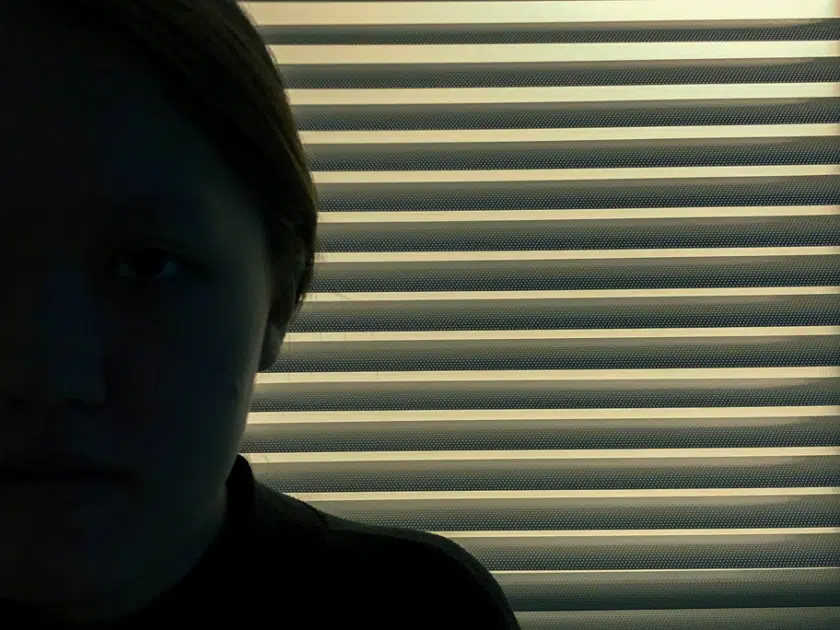
Codependent relationships are incredibly toxic and can quickly spiral down the rabbit hole of emotional, physical, or verbal abuse.
Additionally, it makes two people overly unsatisfied yet still extremely attached; this starts a vicious cycle of abuse, leading to mental health illnesses like anxiety or depression.
People in a codependent relationship, whether they are the giver or taker, can develop a fear of expressing their true selves. This can cause them to bottle up their true feelings and wants, leading to severe mental health problems.
They also tend to forget about themselves, even their health and sanity, for the other person’s sake. This may lead them to justify abuse inflicted on them as they have forgotten their sense of self-worth in a darker situation.
Codependent people have an unhealthy and obsessive need to be in a relationship all the time because they see this as the only means to obtain their self-worth.
This may lead to relationship anxiety or entering relationships with the wrong kind of people (e.g., abusers, drug dealers, criminals, etc.) just for being in a relationship.
Being codependent or being in a codependent relationship can impair the person’s self-worth, especially if they have experienced traumatic experiences at the hands of their partners.
What should you do if you are in a codependent relationship?

If you see these red flags in your relationship, worry not because we have nine easy steps on how to overcome codependent relationships:
- Take time to think about your own boundaries, limits, goals, interests, and ambitions. When you have been in a codependent relationship for so long, sometimes you lose yourself, which is why re-knowing yourself is the first step to overcoming it.
- Engage in an open and meaningful conversation about what you want. Once you know yourself more, especially what you want as an individual, it is essential to communicate all of these to your partner.
- Be ready for the response, but always be firm about your boundaries. Your partner may react negatively or positively to the conversation. However, regardless of the outcome, never entertain the idea that you deserve to be in a toxic relationship or that putting yourself first is selfish.
- Strictly set your boundaries. You can listen empathetically if your partner questions it. Still, it should stop there, and you should always refuse to let her break your limits.
- Learn what a healthy relationship looks like to quickly identify which actions or norms you shouldn’t enable in your relationship. It’s hard at first, especially since you have probably gotten used to it, and habits are always hard to break.
- Never think that it’s your responsibility to fix the person. The reality is that you can’t fix a person, especially if they don’t want to be fixed. Only they can help themselves.
Accept them for who they are without trying to change them; however, reconsider the relationship if and when you realise that you do not like the person you are in a relationship with. - Love and support your partner, as well. If your partner decides to change to fix the relationship, they are probably going through a tough time. You can offer support that is within your limits by talking to them about their problems, listening to their worries, or providing new perspectives and advice.
- Go to therapy, either as individuals or as a couple. Contrary to popular belief, couples therapy is not just for married people or romantic partners. Couples therapy is for two adults, regardless of the type or length of the relationship, who are having excessive conflicts in their relationship.4
Alternatively, you and your partner can also go for individual therapy, where you can safely process your experiences and learn new perspectives about your relationship. This is highly recommended for people who are or were in abusive relationships to mitigate the risks of developing mental health illnesses. - Practice prioritising yourself. Overcoming codependency is not a one-time thing– it does not end with communicating your boundaries. You should consistently practice setting time and space for your interests, pursuing your goals and aspirations, taking care of yourself, and letting go of the negative self-talk.
What should you do if you are codependent?

If you believe that you are the one who is codependent in the relationship or that you manifest some codependent behaviours, here’s a guide to conquering codependency according to a couples therapist:5
- Look inside yourself and analyse your codependent tendencies. It’s important to know what codependent relationships look like vis-a-vis healthy relationships.
While being a codependent partner may not be a good thing, don’t forget to still have compassion towards yourself. Codependency is a learned behaviour from childhood, so you shouldn’t think that you are flawed or defected for being one. - Practice small acts of “smart” selfishness. Codependency is a spectrum. Some are full-on narcissistic and abusive partners, while some are still kind, thoughtful, and compassionate.
Allow yourself sans guilt and judgment to practice small acts of “smart selfishness” such as pursuing your passion, hanging out with your friends without your partner, doing a hobby, or honouring your needs and boundaries. - Get to know your own actual needs and your fears. Sometimes we mistake what we really want for avoiding what we truly fear, so make a habit of practicing mindfulness, soothing yourself, and checking in with your true needs.
- Always communicate directly and accurately. Once you are clear with your needs, you have to share them with your partner directly, leading to zero room for misinterpretation. This will make other people see more than just your personality’s “pleasing” side.
- Remember that you can never control other people’s actions and thoughts. Just focus on fixing yourself first, and trust that your partner can resolve their own issues.
- Practice unconditional self-love. There are many ways to do it, such as prioritising yourself, doing love and kindness meditation, saying self-affirmations, or celebrating your baby steps and wins.
- Let go of worst-case scenarios in your mind. You must recognise that other people have their own unique growth journeys separate from yours.
- Release attachment and welcome uncertainties. We often cling to the attachment for fear of the unknown and the inevitable. Still, these two things are unavoidable and facts of life.
Do not do something just because you are scared of the outcome, which you may often assume as negative. Remember that your self-worth and value are not reliant on other people, so you do not have to cling to them to feel that you matter.
Can therapy help with codependency?

Any type of therapy can definitely help with codependency. It’s crucial to find a good mental health professional who is experienced and knowledgeable in handling codependency issues.
Unfortunately, codependency has a higher likelihood of having low self-esteem and intense feelings of guilt and shame.
In fact, research has found a relationship between codependency and mental health conditions such as depression, anxiety, borderline personality disorder, dependent personality, and eating and food issues. Additionally, it can also be a risk factor for substance abuse.6
Therapy is essential to avoid and/or treat mental health disorders related to codependency and help the person overcome their codependency behaviours.























